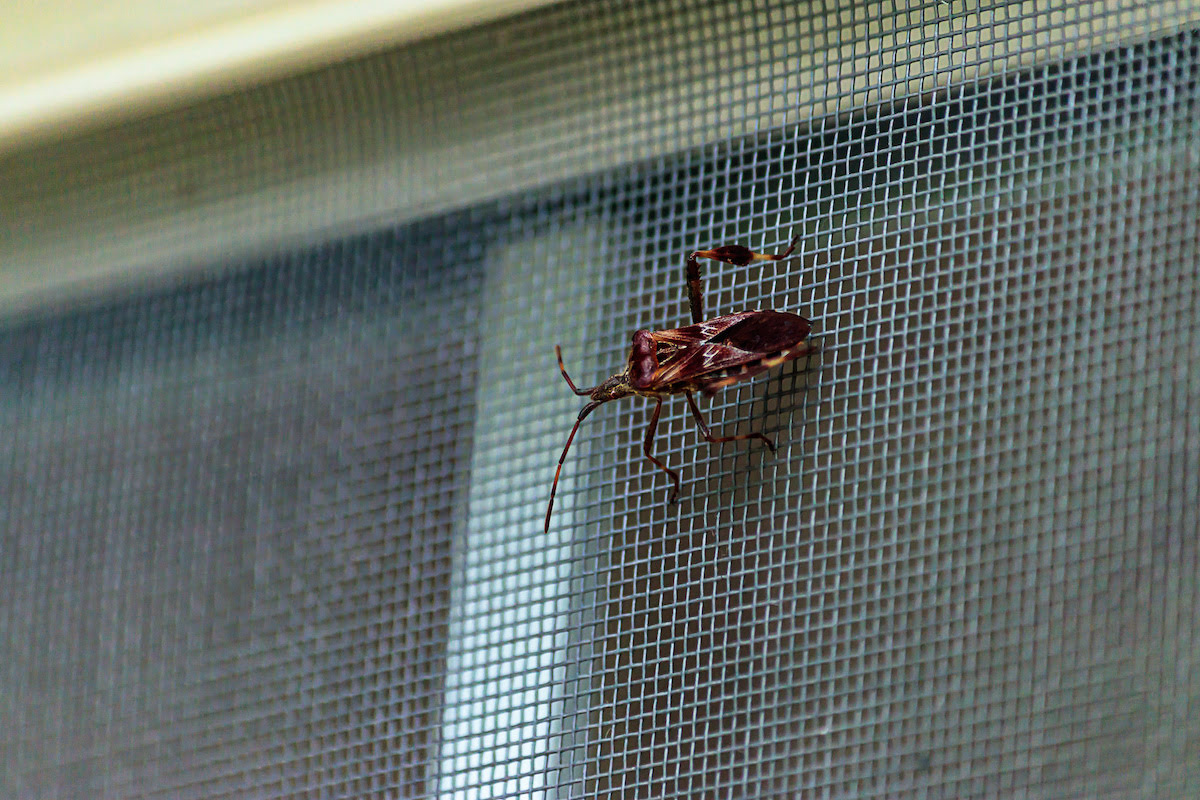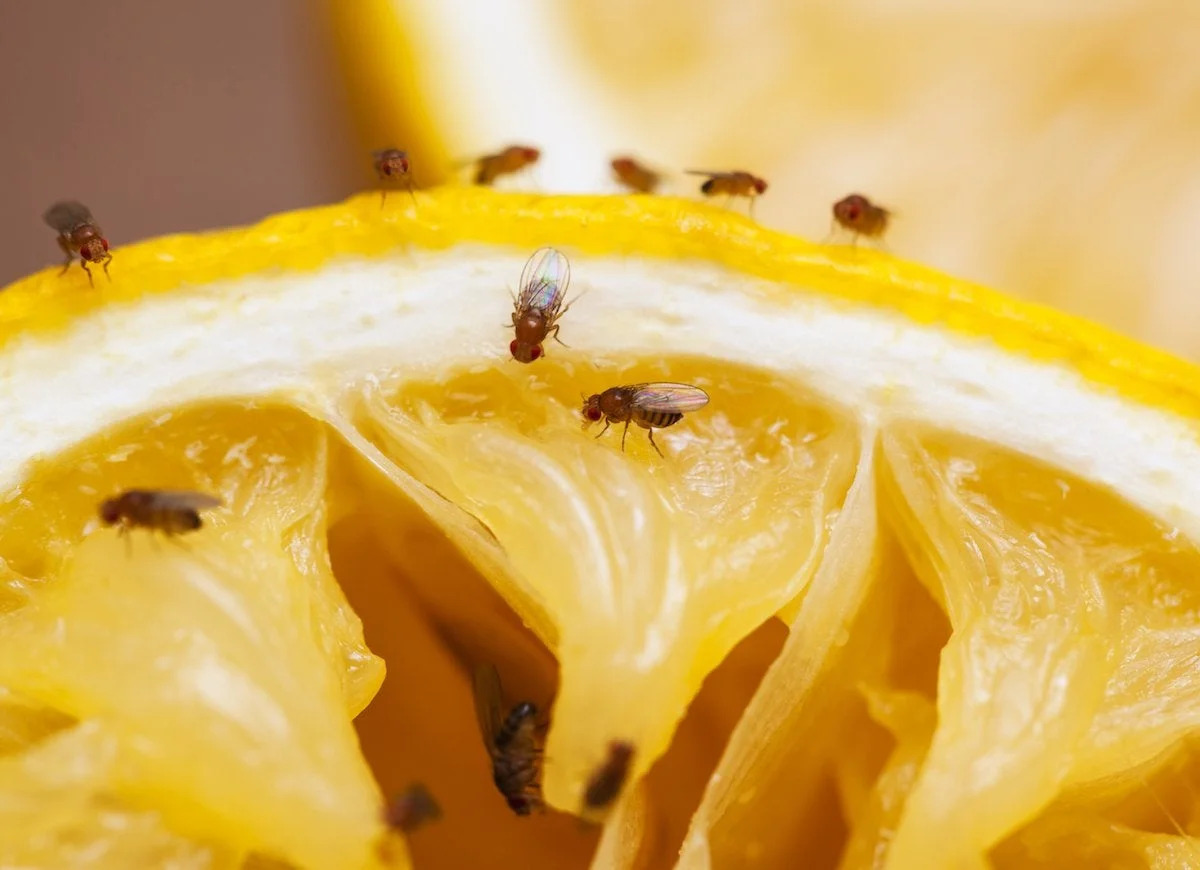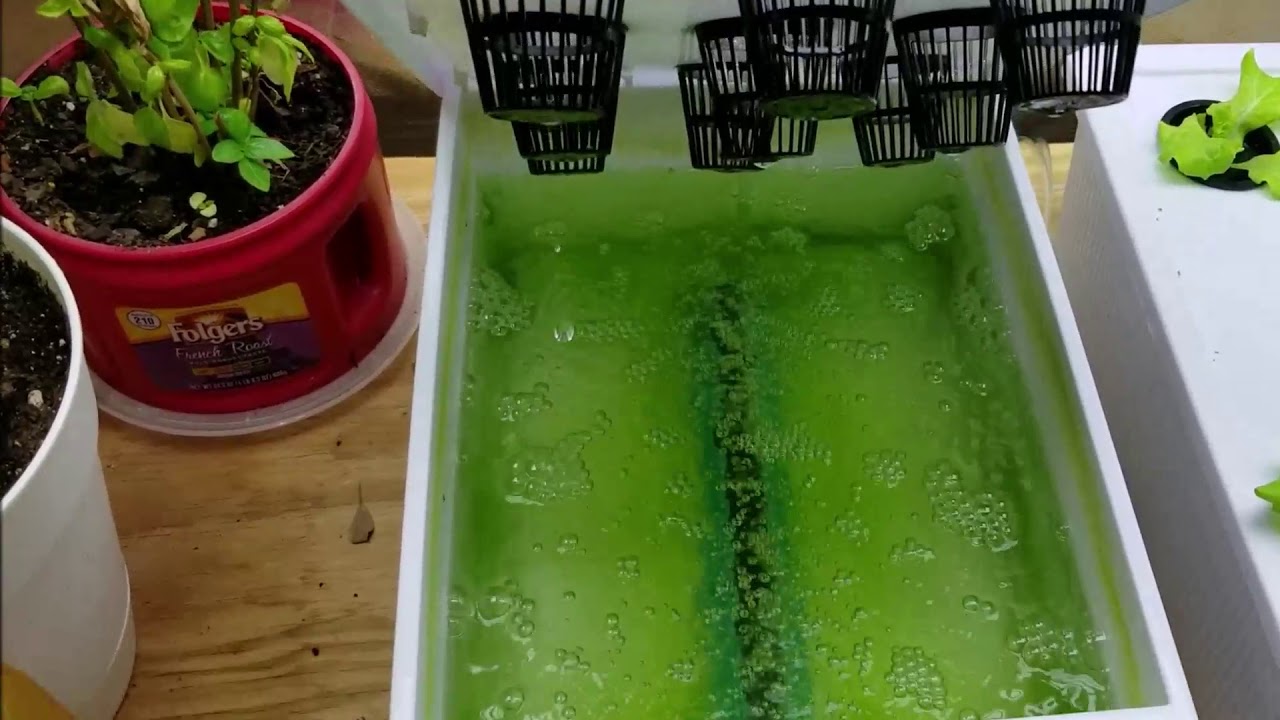Home>Gardening News and Trends>Latest News>How To Prevent Insects In House


Latest News
How To Prevent Insects In House
Modified: January 22, 2024
Discover the latest news and effective ways to prevent insects from invading your house. Learn essential tips and tricks to keep your home insect-free.
(Many of the links in this article redirect to a specific reviewed product. Your purchase of these products through affiliate links helps to generate commission for Chicagolandgardening.com, at no extra cost. Learn more)
Table of Contents
- Introduction
- Importance of Preventing Insects in the House
- Identifying Common Household Insects
- Understanding the Causes of Insect Infestations
- Ways to Prevent Insects from Entering the House
- Natural Remedies for Insect Control
- Maintaining Cleanliness and Hygiene to Prevent Insects
- Regular Inspections and Repairs to Eliminate Entry Points
- Proper Food Storage to Deter Insects
- Effective Use of Insect Repellents
- Seeking Professional Pest Control Services
- Conclusion
Introduction
Welcome to our comprehensive guide on how to prevent insects in your house. Dealing with insect infestations can be frustrating and detrimental to your home and health. Insects like ants, cockroaches, mosquitoes, and flies are not only a nuisance but also carry diseases and can cause damage to your property. That’s why it’s crucial to take proactive measures to keep these pesky creatures out of your living space.
In this article, we will explore the importance of preventing insects in the house, identify common household insects, understand the causes of infestations, and provide effective ways to keep them at bay. Whether you are a homeowner, a renter, or simply concerned about keeping your living environment clean and pest-free, this guide will equip you with the necessary knowledge to prevent insects from invading your home.
By implementing the tips and techniques outlined in this article, you can maintain a comfortable and hygienic living space while safeguarding your family’s health. From natural remedies to proper food storage and regular inspections, we will cover a range of preventative measures to help you combat insect infestations.
Remember, prevention is key when it comes to insects in the house. By taking proactive steps now, you can minimize the risk of infestations and avoid the need for costly and time-consuming extermination in the future. Let’s dive into the details and discover how you can keep insects at bay and enjoy a pest-free home environment.
Importance of Preventing Insects in the House
Insects are more than just a nuisance in your home; they can pose serious risks to your health and well-being. Preventing insects from entering your house is crucial for several reasons:
1. Health concerns: Many insects carry diseases and can transmit them to humans. Mosquitoes, for example, can transmit malaria, dengue fever, and the Zika virus. Cockroaches can spread bacteria and allergens, triggering allergies and asthma attacks. By preventing insects from entering your house, you reduce the risk of contracting these harmful diseases.
2. Property damage: Insects can cause significant damage to your property. Termites, for instance, can eat away at the wooden structures of your home, leading to costly repairs. Carpenter ants are also notorious for damaging wood. By taking preventive measures, you can protect your property from these destructive pests.
3. Hygiene and cleanliness: Insects, such as ants, flies, and cockroaches, are attracted to food crumbs and waste. They can contaminate your food, utensils, and surfaces, compromising your hygiene and cleanliness standards. Preventing their entry into your house helps maintain a clean and sanitary living environment.
4. Peace of mind: Living with insects can be stressful and unsettling. It can disrupt your daily activities and make you uncomfortable in your own home. By actively preventing insects from invading your space, you can enjoy peace of mind and a sense of security.
5. Protecting your family: If you have young children or elderly family members, preventing insects from entering your house becomes even more important. Children and the elderly are more susceptible to diseases carried by insects. By creating a pest-free environment, you ensure the well-being of your loved ones.
Taking the necessary steps to prevent insects in your house not only improves your quality of life but also saves you money in the long run. It eliminates the need for costly extermination treatments and repairs caused by insect damage. Stay proactive and make insect prevention a priority to protect your health, property, and overall well-being.
Identifying Common Household Insects
Before you can effectively prevent insects from entering your house, it’s essential to be able to identify the common pests that may try to invade your living space. By recognizing these insects, you can better understand their behaviors, habits, and potential risks. Here are some commonly found household insects:
1. Ants: Ants are social insects that form colonies and are often attracted to food sources. They can be found in kitchens, pantries, and areas with food debris. Common ant species include sugar ants, carpenter ants, and fire ants.
2. Cockroaches: Cockroaches are nocturnal insects that thrive in warm and humid environments. They are often found in kitchens, bathrooms, and damp areas. Common varieties include German cockroaches, American cockroaches, and Oriental cockroaches.
3. Flies: Flies are known for their ability to quickly reproduce and are attracted to decaying organic matter. They can spread diseases and contaminate food. Houseflies and fruit flies are the most common types found in households.
4. Mosquitoes: Mosquitoes are notorious for their itchy bites and ability to transmit diseases, such as malaria and dengue fever. They breed in stagnant water and are most active during the warmer months.
5. Bed bugs: Bed bugs are small parasitic insects that feed on human blood. They are commonly found in beds, mattresses, and furniture. Signs of a bed bug infestation include small bloodstains on sheets, dark spots of feces, and itchy bite marks on the body.
6. Spiders: Spiders are not insects but arachnids. While most spiders are harmless, some can be venomous. Common household spiders include the house spider, cellar spider, and wolf spider.
7. Silverfish: Silverfish are small, agile insects that prefer dark, damp areas. They feed on starches and can damage books, paper, and clothing.
By familiarizing yourself with these common household insects, you can be alert to any signs of an infestation and take early prevention measures. Remember, proper identification of the pests is essential for selecting the most appropriate methods to control and prevent their presence in your home.
Understanding the Causes of Insect Infestations
In order to effectively prevent insect infestations in your house, it’s important to understand the underlying causes that attract and facilitate their presence. Here are some common factors that contribute to insect infestations:
1. Poor sanitation: Insects are attracted to areas with poor sanitation and hygiene. Food debris, garbage, and standing water create ideal breeding grounds for many pests. Regular cleaning and proper waste management are essential in preventing insect infestations.
2. Cluttered spaces: Cluttered and untidy areas provide hiding places and nesting sites for insects. Piles of papers, clothes, and other materials offer protection and breeding grounds for pests like silverfish and bed bugs. Keeping your living spaces organized and clutter-free can deter insect activity.
3. Cracks and openings: Insects can easily enter your house through cracks, gaps, and openings in walls, windows, and doors. Common entry points for pests include gaps around utility pipes, damaged window screens, and poorly sealed doors. Regularly inspecting and sealing these openings will help prevent insects from entering your home.
4. Moisture and humidity: Moisture and humidity attract insects like cockroaches, silverfish, and mosquitoes. Leaky pipes, damp basements, and areas with excessive moisture create the perfect environment for these pests to thrive. Repairing leaks and improving ventilation will help reduce moisture levels and deter infestations.
5. Unsealed food: Insects are drawn to unsealed food and can quickly infest your pantry. Improperly stored grains, cereals, and fruits attract pests like ants, beetles, and weevils. Using airtight containers and regularly inspecting and discarding expired food can help prevent infestations.
6. External factors: Insects can be introduced to your house through various external sources. They can hitch a ride on clothing, pets, or infested items brought into the house. Being mindful of these sources and taking preventative measures, such as checking your pets for fleas and practicing proper hygiene when returning home from infested areas, can help reduce the risk of infestation.
By understanding the causes of insect infestations, you can take proactive measures to address and eliminate these factors. By maintaining a clean, clutter-free, and well-sealed living environment, you can significantly reduce the likelihood of insect infestations and create a pest-free home.
Ways to Prevent Insects from Entering the House
Preventing insects from entering your house is an essential step in maintaining a pest-free living environment. Here are some effective ways to keep insects at bay:
1. Seal Entry Points: Inspect your house for cracks, gaps, and openings where insects can enter. Seal any openings around windows, doors, utility pipes, and vents using caulk or weatherstripping.
2. Install Window Screens: Ensure that all windows and doors have properly fitted screens to keep out flying insects.
3. Fix Leaks and Damp Areas: Repair any leaks in pipes, faucets, and roofs to eliminate sources of moisture that attract insects.
4. Clear Clutter: Keep your living spaces tidy and organized, reducing potential hiding places for insects. Regularly declutter your home and dispose of unnecessary items.
5. Proper Waste Management: Dispose of garbage regularly in tightly sealed bins. Clean empty containers and food spills to reduce odors and attractants for insects.
6. Keep Food Sealed: Store food in airtight containers to prevent attracting ants, beetles, and other pantry pests. Regularly clean and inspect your pantry for signs of infestation.
7. Remove Standing Water: Eliminate stagnant water sources, such as empty flower pots, gutters, and bird baths, as they attract mosquitoes.
8. Trim Vegetation: Keep yard vegetation well-maintained and trim tree branches away from the house to prevent insects from using them as access points.
9. Install Door Sweeps: Use door sweeps or draft stoppers to prevent insects from entering through gaps at the bottom of doors.
10. Use Natural Repellents: Use natural insect repellents like citronella, lavender, or eucalyptus essential oils to deter insects. Place these around entry points and outdoor living areas.
11. Regular Cleaning: Vacuum and sweep regularly to remove crumbs and debris that attract insects. Pay close attention to areas like kitchen counters, dining areas, and floors.
12. Maintain Outdoor Lighting: Position outdoor lights away from entrances to reduce attracting flying insects. Consider using yellow or LED lights, as they are less attractive to insects.
By implementing these preventative measures, you can significantly reduce the chances of insect infestations in your home. Taking a proactive approach to insect prevention will help create a more comfortable and pest-free living environment for you and your family.
Natural Remedies for Insect Control
When it comes to controlling insects in your house, you don’t always have to rely on chemical-based pesticides. There are several natural remedies that you can use to deter and control insects. Here are some effective natural remedies:
1. Citrus Peels: Citrus fruits like oranges and lemons contain natural oils that repel ants and other insects. Place citrus peels near entry points or areas prone to infestation.
2. Vinegar: Vinegar is a versatile household ingredient that can repel ants, flies, and other bugs. Mix equal parts of water and vinegar in a spray bottle and use it to wipe down surfaces or spray in areas where insects gather.
3. Essential Oils: Certain essential oils have insect-repelling properties. Peppermint, eucalyptus, tea tree, and lavender oils can be diluted with water and sprayed around entry points or infested areas to keep insects at bay.
4. Diatomaceous Earth (DE): DE is a natural powder made from fossilized algae. It is effective in controlling pests like ants, cockroaches, and fleas. Sprinkle DE in areas where insects frequent or create a barrier around the perimeter of your house.
5. Cedarwood: Cedarwood has natural insect-repelling properties. Use cedar chips or cedar oil to deter insects like moths, ants, and fleas. Place cedar chips in closets or use cedar oil in a diffuser.
6. Herbs: Many herbs have insect-repelling properties. Planting herbs like basil, mint, rosemary, and lavender around windows, doors, and outdoor living areas can help discourage insects from entering.
7. Neem Oil: Neem oil is a natural pesticide derived from the neem tree. It is effective against a wide range of insects, including mosquitoes, aphids, and whiteflies. Dilute neem oil with water and spray it on plants or areas where insects gather.
8. Garlic: Garlic has natural insect-repellent properties. Crush garlic cloves and mix with water to create a spray. Apply the garlic spray in areas where insects are present.
9. Chrysanthemum Flowers: Chrysanthemums contain a natural insecticide called pyrethrum. Create a solution by boiling chrysanthemum flowers, strain it, and use the liquid as a spray to repel insects.
10. Pepper Spray: Make a homemade pepper spray by mixing hot pepper powder or flakes with water. Use this spray to repel insects like ants and cockroaches.
While natural remedies can be effective in repelling and controlling insects, it’s important to note that their effectiveness may vary depending on the type and severity of the infestation. It’s always a good idea to combine natural remedies with other preventative measures and seek professional pest control services if needed.
Maintaining Cleanliness and Hygiene to Prevent Insects
One of the most effective ways to prevent insects from entering your house is by maintaining cleanliness and good hygiene practices. Insects are attracted to food sources, moisture, and clutter, so keeping your living spaces clean and tidy is essential. Here are some important cleanliness and hygiene tips to prevent insects:
1. Kitchen cleanliness: Clean up food spills and crumbs immediately. Regularly wipe down countertops, tables, and appliances. Sweep and mop the kitchen floor regularly to eliminate food debris.
2. Pet food and water: Clean and refill pet food and water bowls regularly. Avoid leaving food out for long periods and clean up any spills promptly.
3. Garbage management: Dispose of garbage regularly in sealed bins. Keep garbage areas clean and sanitize the bins regularly to prevent insect infestations.
4. Fruit and vegetable storage: Store fruits and vegetables properly. Keep them in the refrigerator or in sealed containers to prevent attracting fruit flies and other insects.
5. Regular vacuuming and dusting: Vacuum carpets, rugs, and upholstery regularly to remove crumbs and food particles that attract insects. Dust surfaces, shelves, and corners to eliminate cobwebs and potential hiding spots for insects.
6. Bathroom cleanliness: Keep bathrooms clean and dry to prevent moisture buildup that attracts cockroaches and silverfish. Wipe down wet surfaces, fix leaky faucets, and regularly clean toilet bowls and drains.
7. Laundry management: Wash and dry clothes promptly to prevent attracting silverfish and moths. Store clean clothes in sealed containers or garment bags to protect them from pests.
8. Outdoor cleanliness: Trim vegetation and remove debris in your yard to reduce hiding places for insects. Keep rubbish bins away from the house and ensure they are properly sealed.
9. Proper food storage: Store dry goods like cereal, rice, and flour in sealed containers. Ensure that pantry shelves are clean and free from spills or crumbs.
10. Regular maintenance: Stay proactive with regular maintenance tasks. Repair leaky pipes, fix broken screens, seal cracks, and address any structural issues that could provide entry points for insects.
By maintaining cleanliness and good hygiene practices in your home, you create an environment that is less attractive to insects. Regular cleaning efforts and proper food storage go a long way in preventing insect infestations. By making cleanliness a priority, you can significantly reduce the risk of pests entering your living spaces and enjoy a cleaner, healthier home for you and your family.
Regular Inspections and Repairs to Eliminate Entry Points
To effectively prevent insects from entering your house, it’s crucial to conduct regular inspections and repair any potential entry points. By identifying and sealing up these openings, you can significantly reduce the chances of insect infestations. Here are some key steps for regular inspections and necessary repairs:
1. Exterior inspection: Start by inspecting the exterior of your house. Look for cracks, gaps, or holes in the foundation, walls, and roof. Check the condition of window frames and screens. Seal any visible openings using caulk or other appropriate sealants.
2. Door and window inspection: Examine all door frames and ensure they are properly sealed. Check for gaps between the door and the frame, as insects can easily squeeze through these spaces. Install weatherstripping or door sweeps to seal any gaps.
3. Utility entry points: Inspect areas around utility pipes, vents, and electrical lines. Seal any gaps or openings using expanding foam or appropriate sealants to prevent insects from entering through these points.
4. Cracks and crevices: Pay attention to cracks and crevices in walls, floors, and ceilings. These areas can serve as entry points for insects. Seal any cracks and gaps with caulk or putty, making sure to thoroughly fill the openings.
5. Inspect attic and crawl spaces: Inspect your attic and crawl spaces for signs of insect activity or potential entry points. Be on the lookout for damaged insulation or visible openings. Seal any gaps or cracks to prevent insects from gaining access to your living spaces.
6. Check screens and vents: Inspect window screens for tears or holes and repair or replace damaged screens. Similarly, ensure that vents in bathrooms, kitchens, and laundry areas are properly covered with mesh screens to prevent insects from entering.
7. Inspect exterior doors: Check the condition of the weatherstripping and door sweeps on exterior doors. Replace any worn or damaged weatherstripping and repair or replace door sweeps to ensure a tight seal.
8. Monitor for signs of pests: During your inspections, keep an eye out for signs of pest activity, such as droppings, nests, or chew marks. If you spot any signs of an infestation, take immediate action to address the problem.
Regular inspections and timely repairs are essential in keeping insects out of your home. By taking proactive measures to eliminate entry points, you create a physical barrier for insects, reducing the chances of infestations. Remember to conduct these inspections at least once a year and promptly address any maintenance or repair needs to maintain a pest-free living environment.
Proper Food Storage to Deter Insects
Proper food storage is essential in preventing insects from infiltrating your kitchen and pantry. Insects are attracted to food sources, so implementing effective food storage practices can help deter them from infesting your food supply. Here are some important tips for proper food storage:
1. Keep dry goods in airtight containers: Store dry goods such as grains, cereals, and flour in sealed, airtight containers. This prevents insects like ants, beetles, and weevils from accessing and infesting your food.
2. Store perishable items in the refrigerator: Perishable items like fruits, vegetables, dairy products, and leftovers should be stored in the refrigerator. Lower temperatures slow down the rate of spoilage and deter insects from feeding and breeding on these items.
3. Check for infested items: Regularly inspect your pantry for signs of insect infestation, such as presence of webs, larvae, or tiny holes in packages. If you notice any infested items, discard them immediately to prevent the spread of the infestation.
4. Properly seal open packages: If you have opened packages of food, make sure to tightly seal them with clips, twist ties, or transfer them to airtight containers. This prevents odors and scents from attracting insects.
5. Ensure cleanliness: Maintain cleanliness in your pantry and kitchen. Clean up any spilled food promptly, as even small crumbs and food particles can attract insects. Wipe down shelves regularly to remove any food residue.
6. Rotate food items: Practice a “first in, first out” approach when it comes to using your pantry items. Consume older items before newer ones to prevent food from sitting for extended periods, potentially attracting insects.
7. Avoid storing food near heat sources: Heat sources can accelerate the spoilage of food and attract insects. Keep your pantry and food storage areas away from direct sunlight or heat-producing appliances.
8. Store pet food properly: If you have pets, ensure their food is stored in sealed containers to prevent attracting insects. Keep the feeding area clean and remove any leftover food to minimize the risk of attracting pests.
9. Implement regular cleaning: Regularly clean your pantry, cabinets, and shelves to remove any food residue and spilled liquids. Vacuuming or wiping down surfaces will help eliminate any traces that may attract insects.
10. Manage produce: Inspect fruits and vegetables before storing them. Remove any damaged or overripe items as they can attract fruit flies and other insects. Store produce in cool, dry places or in the refrigerator as necessary.
By implementing these proper food storage practices, you can significantly reduce the risk of attracting insects and keep your food supply safe and pest-free. Remember to regularly check and maintain cleanliness in your pantry to ensure the integrity of your stored food items.
Effective Use of Insect Repellents
In addition to preventive measures and natural remedies, using insect repellents can be an effective way to keep insects away from your living spaces. Here are some key points to consider when using insect repellents:
1. Select the right repellent: There are various insect repellent options available, including sprays, lotions, oils, and candles. Choose a repellent that is specifically designed to repel the type of insects you are targeting, such as mosquitoes, flies, or ants.
2. Read and follow instructions: Carefully read and follow the instructions on the repellent’s packaging. Pay attention to application methods, recommended frequency, and any safety precautions or age restrictions.
3. Apply repellent properly: Apply the repellent evenly on exposed skin or clothing, following the recommended amount. Avoid applying repellents near the eyes, mouth, or open wounds, and wash your hands after application.
4. Use repellents in appropriate settings: Use insect repellents when you are in areas with a known insect presence or higher risk of exposure. This includes outdoor activities, camping trips, or when visiting areas with a high mosquito population.
5. Consider long-lasting formulations: Some repellents offer long-lasting protection, reducing the need for frequent reapplication. Look for products that provide extended protection to ensure effectiveness over longer periods.
6. Avoid overuse: While repellents are useful, it’s important not to overuse them unnecessarily. Apply repellents as needed, based on the level of insect activity and the duration of your outdoor exposure.
7. Be mindful of sensitive individuals: Some individuals may be more sensitive to certain repellents or have allergies. Take special care when applying repellents to children, pregnant women, or those with respiratory conditions. Choosing milder formulations or consulting a healthcare professional is recommended in such cases.
8. Use in combination with other preventive measures: Insect repellents should not be relied upon as the sole method of protection. Combine repellent use with other preventive measures, such as wearing protective clothing, using bed nets, and avoiding outdoor activities during peak insect activity times.
9. Reapply as necessary: Over time, the effectiveness of repellents may wear off due to sweating or rubbing. Reapply repellents according to the instructions to maintain their efficacy.
10. Consider natural repellents: If you prefer a more natural approach, consider using repellents containing ingredients like citronella, eucalyptus, or lavender essential oils. These natural alternatives can be effective in repelling insects without the use of synthetic chemicals.
While using insect repellents can provide an extra layer of protection against pesky insects, it’s important to choose and apply them correctly to ensure effectiveness and safety. Remember to always follow the instructions and use repellents in conjunction with other preventive measures for optimal results.
Seeking Professional Pest Control Services
When preventive measures and DIY methods are not sufficient in addressing persistent or severe insect infestations, it may be necessary to seek professional pest control services. Here are some important considerations when deciding to enlist the help of professionals:
1. Expertise and experience: Professional pest control technicians have the knowledge, training, and expertise to identify and treat various types of insect infestations. They are familiar with the behavior, biology, and habits of different pests, allowing them to implement effective eradication strategies.
2. Customized solutions: Pest control professionals can provide tailored solutions based on the specific needs of your home and the type of infestation. They will conduct a thorough inspection to determine the extent of the problem and recommend the most suitable treatment methods.
3. Safety precautions: Pest control companies adhere to strict safety protocols when using pesticides or insecticides. They are knowledgeable about the correct application techniques and take precautions to minimize risks to humans, pets, and the environment.
4. Long-term prevention: Professional pest control services not only focus on eliminating existing infestations but also offer long-term prevention strategies. They can identify potential entry points and provide recommendations for sealing them up, reducing the risk of future infestations.
5. Specialized equipment and tools: Pest control professionals have access to specialized equipment and tools that may not be readily available to homeowners. This enables them to effectively treat infestations in hard-to-reach areas and apply pesticides efficiently.
6. Time and convenience: Hiring professionals saves you time and effort in dealing with persistent infestations. They handle all aspects of the treatment process, allowing you to focus on other important tasks without the hassle of repeated DIY attempts.
7. Guaranteed results: Many pest control companies offer warranties or guarantees for their services. This means they will return and re-treat if the infestation reoccurs within a specified period, providing you with peace of mind and assurance.
8. Integrated pest management: Professional pest control services often follow an integrated pest management (IPM) approach. It involves a combination of preventive measures, targeted treatments, and ongoing monitoring to ensure long-term pest control effectiveness.
9. Knowledge of regulations: Pest control professionals are familiar with local regulations and guidelines regarding the use of pesticides. They will ensure compliance with applicable laws and guidelines while ensuring effective pest control.
10. Professional advice: Pest control technicians can provide valuable tips and advice on how to prevent future infestations. They will educate you on proactive measures you can take to minimize the risk of pests in your home.
Remember to research and choose reputable pest control companies that have proper licensing, certifications, and positive customer reviews. Obtain multiple quotes and compare services offered before making a decision. Professional pest control services can be a valuable investment in ensuring effective and long-lasting pest management for your home.
Conclusion
Preventing insects from invading your house is crucial for maintaining a clean, safe, and comfortable living environment. By implementing the tips and strategies outlined in this guide, you can significantly reduce the risk of insect infestations and enjoy a pest-free home.
We began by emphasizing the importance of preventing insects in the house, highlighting the health concerns, property damage, and hygiene issues that can arise from infestations. We then discussed the identification of common household insects, allowing you to understand their behaviors and take appropriate measures to control them.
Understanding the causes of insect infestations helped shed light on the factors that attract insects and provided insight into how to address these underlying issues. Taking steps to maintain cleanliness and good hygiene was stressed as a fundamental preventive measure, along with regular inspections and repairs to eliminate potential entry points.
Proper food storage practices were highlighted as essential in deterring insects from infesting your pantry, and the effective use of insect repellents was addressed as a supplementary measure in repelling insects from your living spaces.
Finally, we discussed the option of seeking professional pest control services when preventive measures and DIY methods are not sufficient in managing persistent or severe infestations. Professional technicians can provide expertise, customized solutions, and long-term prevention strategies to ensure effective pest control.
By utilizing a combination of these preventative measures and techniques, you can create a home environment that is unattractive and inhospitable to insects. Regular maintenance, cleanliness, and adherence to best practices will help keep your house free from insect infestations, creating a healthier, safer, and more comfortable living space for you and your family.









